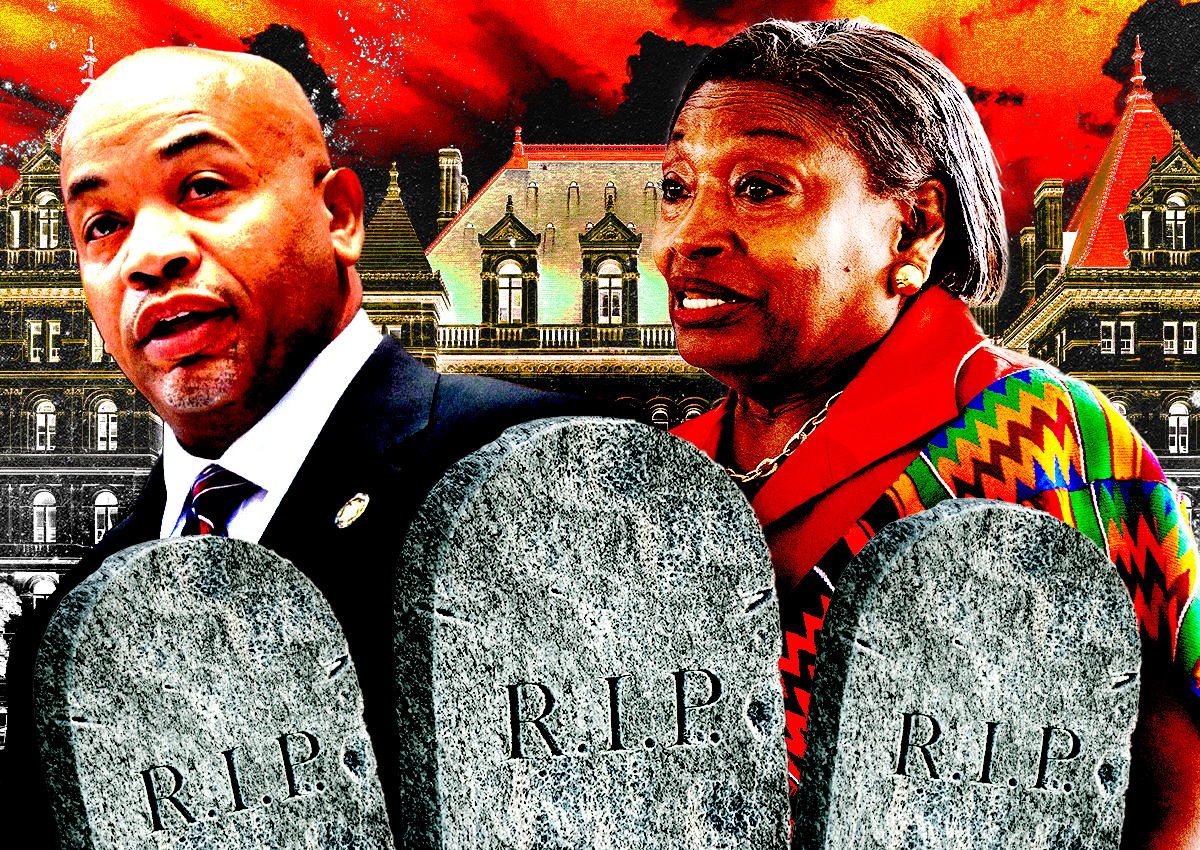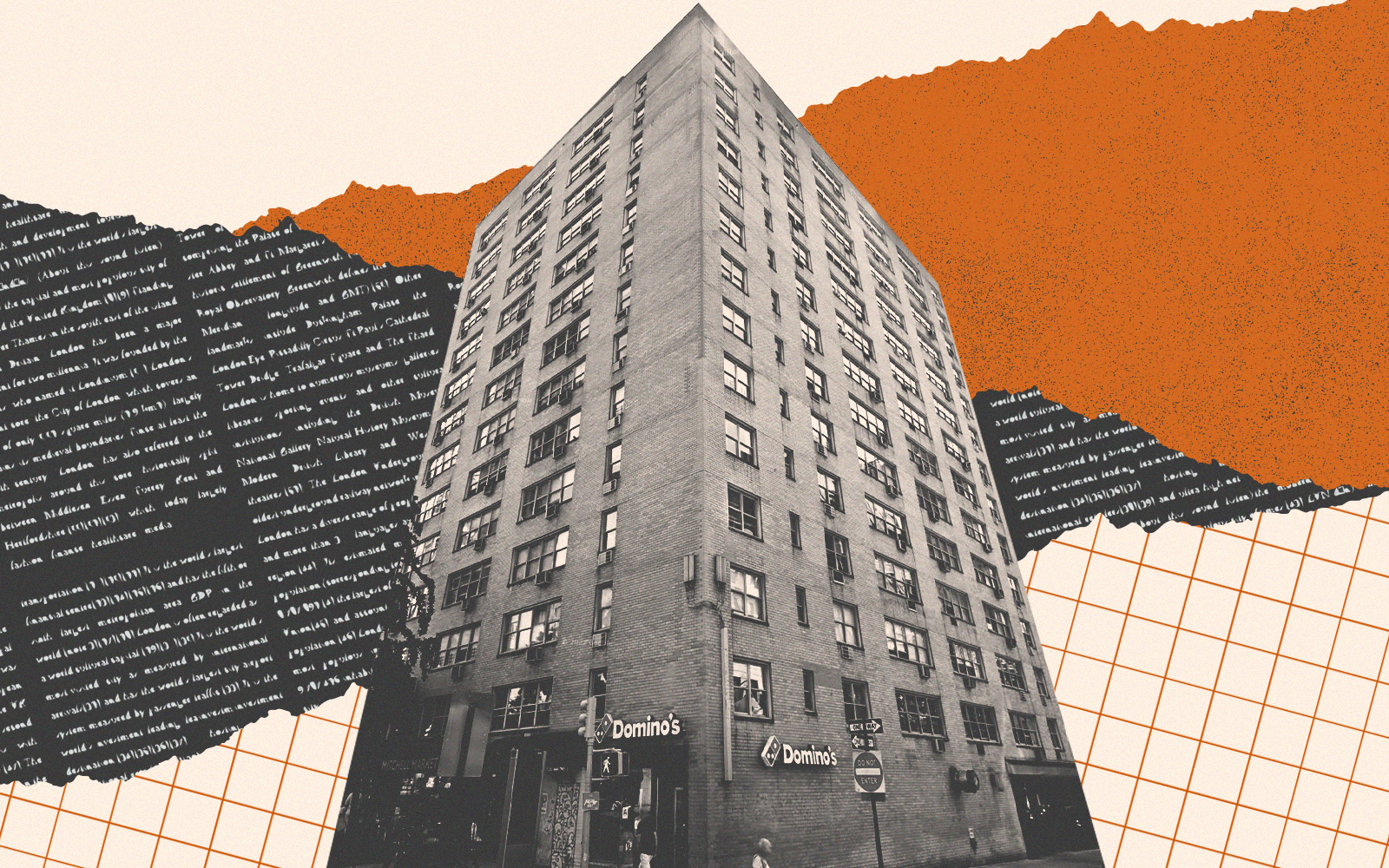In the final hours of the legislative session, lawmakers approved a pair of bills that landlords say will have “devastating” consequences.
The state Assembly on Tuesday approved measures that will make it easier for tenants to prove fraud in rent-overcharge cases and allow them to consult long-ago rent histories to maximize landlords’ liability. The Senate already passed the bills June 9.
The Community Housing Improvement Program claimed the bills are aimed at “punishing property owners” and unraveling a key 2020 court decision, known as Regina Metro v. DHCR, and subsequent decisions that found that the 2019 rent law could not be applied retroactively to overcharge cases.
“They are clearly an attempt to roll back appeals court decisions and will have a devastating effect on the financial stability of New York housing if they are allowed to become law,” Jay Martin, executive director of CHIP, said in a statement.
One of the bills defines fraud as “a material breach of any duty… to disclose truthfully…the rent, regulatory status, or lease information,” which includes failing to register an apartment in a building receiving J-51 or 421a after Oct. 1, 2011. Landlord attorneys argue that the newly passed measure dangerously broadens the definition of fraud.
A “fraud” designation is critical to calculating rent owed to tenants in overcharge cases. For allegations that predate the 2019 law, rent must be calculated based on a four-year lookback unless the landlord schemed to illegally deregulate units.
Tenants can consult rental history beyond the usual four years if they can prove fraud. In that case, the overcharge is calculated based on the lowest stabilized rent recorded for comparable apartments, which can lead to large awards.
The bill’s lead sponsors, Assembly member Linda Rosenthal and Sen. Brian Kavanagh, maintain that the bill does not have a retroactive aim, but instead seeks to clarify existing law. Kavanagh told The Real Deal that the measure simply codifies “what we think the standard for fraud has been.”
“A legislature being clear about what the law is, is a positive thing,” he said. But supporters have acknowledged that the bill is a response to judicial rulings that past rent overcharges were not fraud under the 2019 law.
The new measure also creates rules for setting rents for newly combined rent-stabilized units, similar to regulations proposed but not implemented by the state’s housing regulator last year. Under current law, landlords can set a new first rent upon combining vacant apartments.
The Assembly on Tuesday approved a separate bill that allows tenants to consult rent histories beyond the four-year lookback when seeking to calculate their legal rent after June 14, 2019. The Housing Stability and Tenant Protection Act of 2019 expanded the lookback window to six years when determining rent overcharges, while allowing courts to use any evidence found to be “reasonably necessary” to determine the legal rent.
The new measure clarifies that the broader window shall be used to calculate legal rent post-June 2019, even in cases where a court or agency has determined the rent prior to that date.
Assembly member Jeffrey Dinowitz said the measure “does not attempt to do an end run around the Regina case,” and compared investigating rent overcharges to medical malpractice, in that deeper probes are sometimes needed to show wrongdoing.
“That’s the thing about deception, you don’t always easily discover it,” he said.
The approval of these measures caps a mostly disappointing legislative session for the real estate industry. Lawmakers spurned the governor’s proposal to set housing mandates throughout the state, and fell short of reaching a deal that would have extended the 421a construction deadline and enacted a weaker version of good cause eviction than tenant advocates have demanded.
Read more



The legislature, however, did sign off on a limited replacement J-51 program and an extension of the city housing agency’s lending authority.
The passed bills will be sent later this year to Gov. Kathy Hochul, who can sign or veto them.
